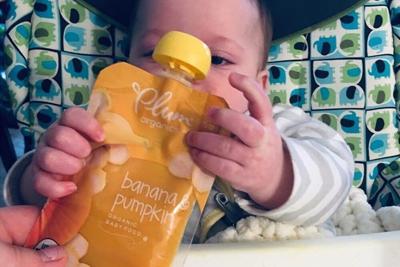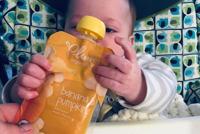
A federal appeals court said evidence that Plum Organics’ products pose a safety hazard was insufficient.
A federal appeals court has granted summary judgment to baby food manufacturer Plum PBC, concluding that plaintiffs failed to show that the company violated California consumer laws by not disclosing possible heavy metal contamination.
The Ninth Circuit Court of Appeals handed down its ruling in a putative class-action lawsuit on April 25. Unlike other recent lawsuits against baby food manufacturers, the lawsuit filed by the plaintiffs did not include allegations of actual harm to children as a result of consuming baby foods that have been found to contain heavy metals such as arsenic and lead, as well as perchlorate.
Instead, the lawsuit alleged Plum Organics did not disclose to consumers that the baby food products could contain contaminants, leading to violations of the California Consumer Legal Remedies Act (CLRA) and the state’s Unfair Competition Law (UCL). The appeals court, however, concluded that plaintiffs’ claims lacked specificity regarding what levels of the contaminants could cause harm or injury.
“Plaintiffs argue that Plum’s products pose an unreasonable safety hazard because they contain detectable amounts of heavy metals and perchlorate, and bioaccumulation of these substances over time can cause adverse health effects,” the opinion states.
The court went on to say that such allegations must describe more than just “conjectural and hypothetical injuries.” The plaintiffs have not alleged that the company’s products contain any specific level of heavy metals or perchlorates, which are found in many forms of produce since they are present in soil.
“Moreover, plaintiffs concede that they are not alleging that Plum’s products are unsafe nor that their children were harmed by Plum’s products,” the opinion says. “On this record, there is insufficient evidence to establish that Plum’s products pose an unreasonable safety hazard.”
The appeals court also questioned the plaintiffs’ position that the company actively concealed its own “exclusive” evidence that its products may contain heavy metals. The opinion points out that several sources have offered evidence from product tests showing Plumb’s products contain detectable levels of the contaminants in question.
“... In response to one report about heavy metals in its products, Plum acknowledged on its website that its products may contain trace heavy metals,” the opinion says.
The appeals court declined the plaintiff’s request that the judges should certify a question to the California Supreme Court about what the legal standard ought to be regarding deception by omission under the CLRA and UCL.
“We are convinced that the California Supreme Court is aware of this issue and it ‘remains free to resolve the legal issue in a future published opinion,’” the opinion states.
Plum Organics declined to comment about the appeals court’s ruling, and plaintiffs’ attorneys did not respond to a request for comment.
The plaintiffs filed their lawsuit in the wake of a report published by the U.S. House of Representatives’ Oversight Committee in 2021. That report concluded that many commercial baby foods, including those manufactured by Plum Organics, are tainted with elevated levels of heavy metals. Such contaminants can harm infants’ neurological development and affect brain activity, according to the report.
In addition, Campbell Soup Co., the parent company of Plum Organics, declined to cooperate with the congressional panel’s investigation, fueling concerns that their products may contain significant levels of the toxic substances.
Heavy metal contamination of the baby foods from companies such as Beech-Nut, Hain Celestial Group and Gerber were found to be in excess of standards used by the Food and Drug Administration for bottled water, the report said.


